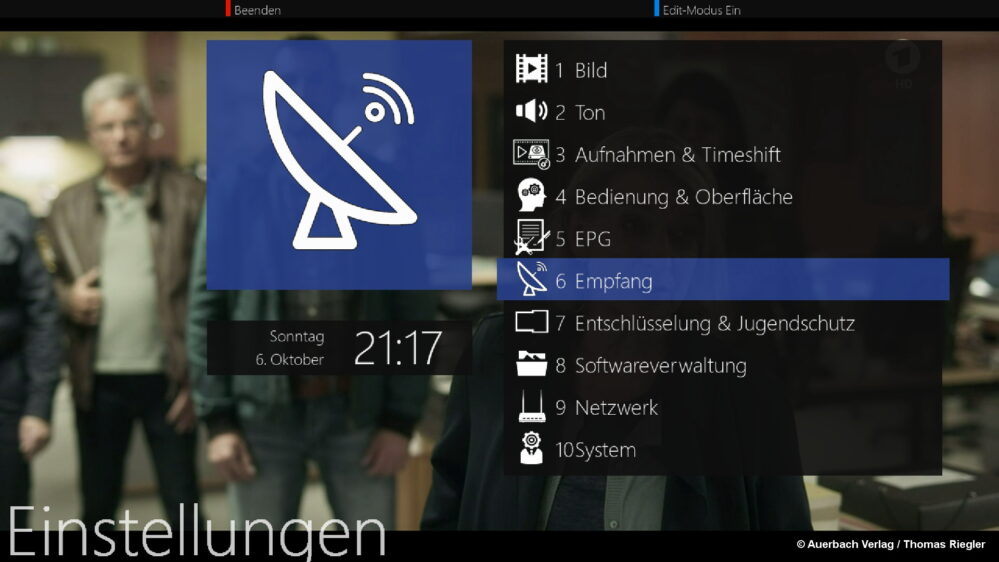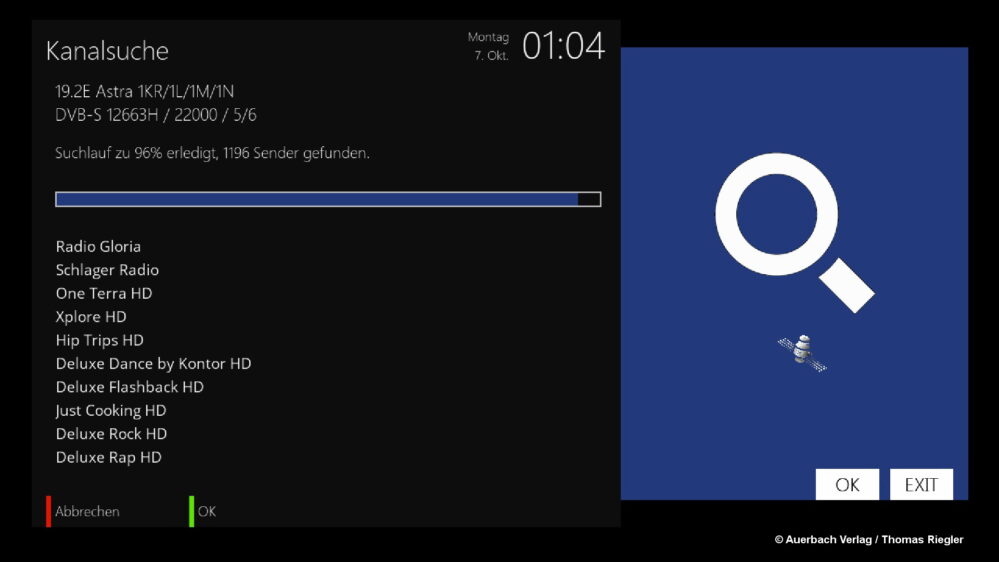On January 7, 2025, ARD will stop broadcasting all of its SD programs. At this point at the latest, ORF will also end SD. It’s high time to save the HD programs from ARD and ORF and adjust the channel list. We’ll show you how.
Even if not all satellite receivers work with the same operating interface, the procedure for the devices is absolutely comparable. Since mainly Linux boxes have been available for years, we show the channel search using OpenATV.


Types of channel scanning
Our set-top boxes can do up to three types of channel search. Automatic and manual scanning is standard in all boxes. The blind scan is an indispensable tool, especially for satellite DXers. But it is also suitable for standard applications, such as a complete Astra channel search.


Automatic station search
As the name suggests, the automatic search scans the entire satellite by itself. At least that’s what it seems. In fact, during the search it only processes a pre-programmed transponder list with stored transmission parameters. However, for older boxes, these parameters may have changed. In the past, many transponders have been converted from DVB-S to DVB-S2 and have therefore received new parameters. However, if these are not yet programmed into the device, nothing will be found on the frequency in question.


In the case of older receivers, the additional problem is that they have not yet saved all of the transponders that are active today. This basically applies to all satellite positions. This also means that such transponders are not detected by the autoscan and therefore the channels transmitting on them are not read. This shortcoming can usually be remedied with a software update. However, this has no longer been available for older non-Linux boxes for years. In such cases, the manual channel search can help.


Automatic channel search in detail
To get to the channel search menu, first go to Settings on the OpenATV main menu page. Then click on the “Reception” submenu. It contains all the necessary receiving configurations. The satellite to be scanned must first be selected in the automatic channel search menu. It is also advisable to let the new channel list overwrite the old channel list. Previously set up favorite lists remain unaffected in OpenATV and comparable interfaces. Only channels that are no longer available leave empty spaces in the lists. The search is started with the green color button on the remote control. All pre-programmed transponders are now processed one after the other and the transmitters transmitted on them are read in. After the automatic channel search has been completed, the box informs us how many TV and radio programs were found in total.
All programs found are added to the alphabetically sorted main channel list, one each for TV and radio. Any number of favorite lists can be generated from this. Only these work with storage space numbers, such as 1 for the first.


Auto scan on TV sets
Depending on the TV model, the automatic channel search can have disastrous consequences. An autoscan can result in the previous station list stored in the device being completely deleted. This not only affects the ordering of the programs, which may have taken hours of effort, but also all the favorites lists that have been created. To prevent this, we recommend manually searching for channels on the tuners built into the TVs.
Also interesting:
Source: www.digitalfernsehen.de


